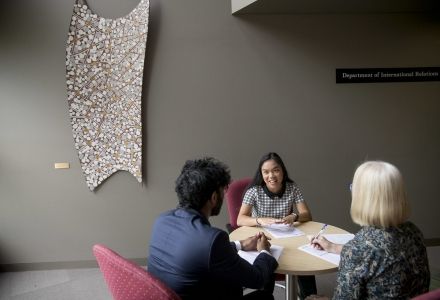
Graduate Certificate of the Repatriation of Ancestral Remains and Cultural Objects
From the earliest days of colonisation, Indigenous ancestral remains were taken from funerary sites and sent to museums worldwide. The theft and scientific misuse of First Nations bodily remains was a colonial violence, the impact of which continue today. Historically, Indigenous people opposed the theft of their ancestors when they could. From the 1970s the global repatriation movement began to emerge when First Nations, particularly in Australia, New Zealand, and North America started campaigning globally for the return of their ancestors and cultural objects. In some countries this prompted unprecedented change in museum policies and the teaching and practice of associated disciplines. Repatriation can play a fundamental role in healing and reconciliation. Today, repatriation of ancestral remains and cultural objects continues to be a key priority for Indigenous peoples in Australia and overseas.
As repatriation activity accelerates in Australia and overseas, this unique Graduate Certificate addresses an acute need for significant capacity building and advanced knowledge in the repatriation of Indigenous ancestral remains and cultural materials. As well as a rapidly increasing interest in repatriation as a topic of research in museum and heritage studies, repatriation is quickly becoming core business for museums, governments, and Indigenous community organisations. Applied and scholarly research in repatriation is mutually inclusive. In order to undertake repatriation work successfully, an understanding of its context and history is essential, with a priority on Indigenous perspectives, histories, knowledges and approaches. Taught by an Indigenous and non-Indigenous team with extensive expertise in repatriation research and practice, the Graduate Certificate fills a distinct gap in availability of programs dedicated to this important and transformative issue.
Our scholarship programs are designed to support students from diverse backgrounds and abilities, and we automatically consider applicants for some of them upon application.
^Times Higher Education - Global University Employability Ranking 2025
Key facts
#1 in Australia for graduate employability^
Career options
These include the GLAM sector, Federal and State Governments, International Organizations and Inter-Governmental agencies, First Nations organisations, NGOs and private sector companies (e.g. heritage consultancies, auction houses etc.).
Fees, scholarships & apply
Tuition fees
Visit the handbook to see indicative fees and Commonwealth supported places for this degree.
Scholarships
ANU offers many scholarships both to overcome disadvantage and to recognise academic merit.
How to apply
You have decided that ANU is the right university for you. Ready to take the next step?
Learn more

Check our series of videos about degree programs, majors and disciplines, and research strengths for your enjoyment.

